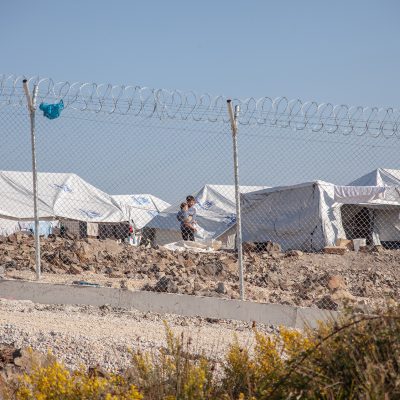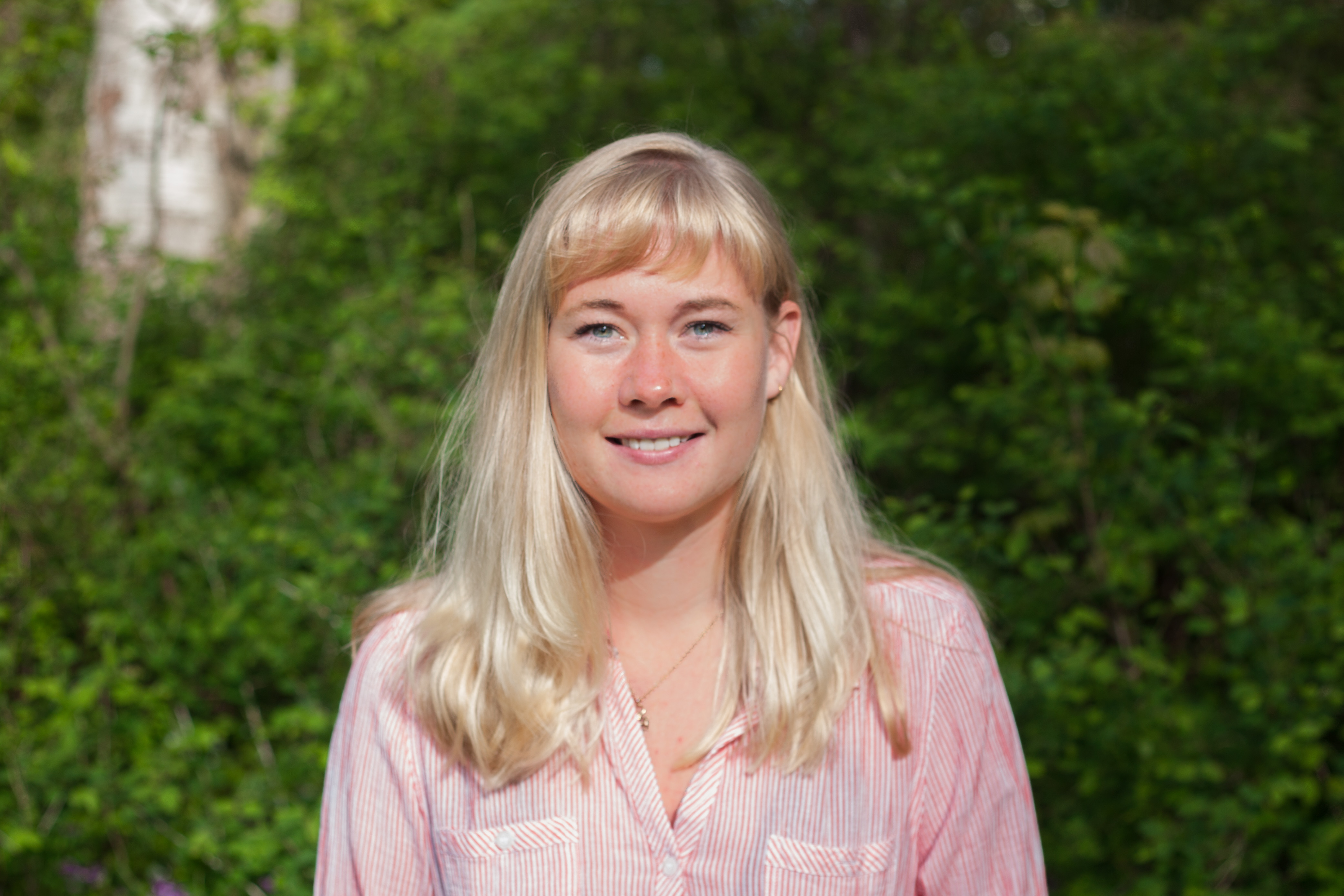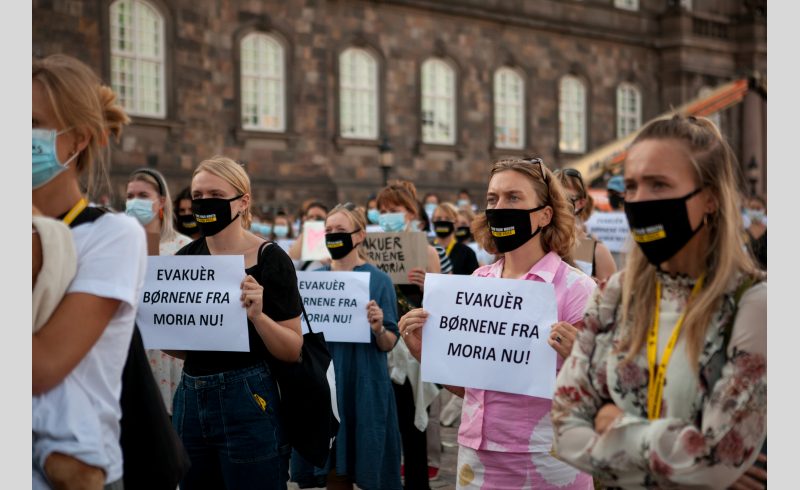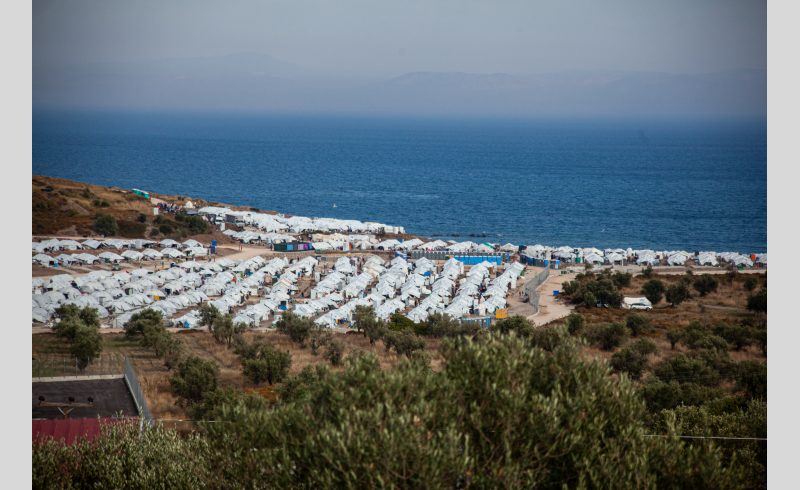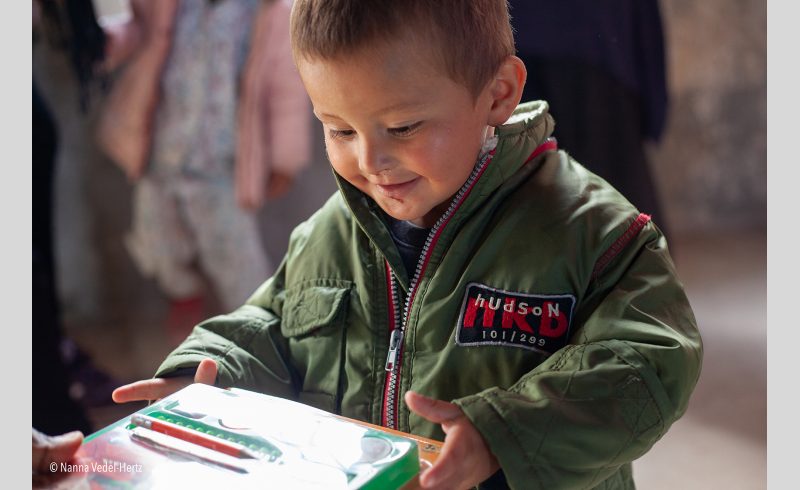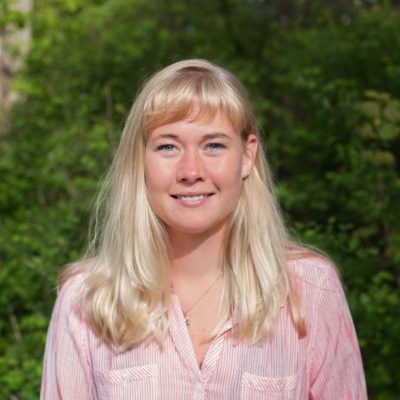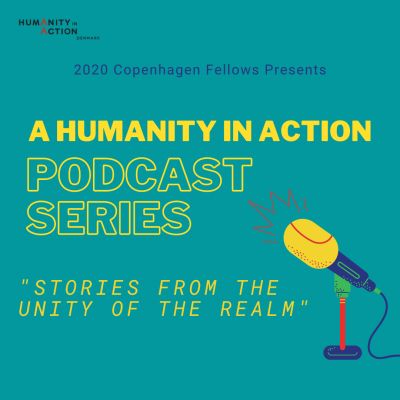Details
Article
Nanna Vedel-Hertz, Master of Arts in Journalism, Media and Globalization, shares her experiences of travelling to a refugee camp on Lesbos, her disbelief in how human rights are discarded at the European borders, and the role of media.
What most people do not realise is that when someone becomes a refugee and loses their citizenship, they also lose their natural right to be heard, to have a voice. This is a right that the media has the power to give them back. I recognise that the media should strive to be as objective as possible, but what we rarely realise is that when we seek to take no one’s side we often unknowingly do the opposite and side with people in power.
The Power of Media
Back in spring 2020 I was writing my dissertation for my Master of Arts in Journalism, Media and Globalization, specializing in war and conflict. The paragraph above ended up being the first paragraph in my entire dissertation. Something my supervisor opposed, but it was important to me. It was a quote from my application for said master’s degree that I had written two years prior. It was written half a year after I had been to the Greek island Lesbos for the first time, having interviewed refugees stranded there. Heard their stories and realized how dire the situation was.
What I realized when rereading the quote was that it was as true as it had ever been: The media played and plays a huge role in not just silencing but determining how we speak of refugees in Europe – and the rest of the world for that matter. And when the media turns their blind eye to what is happening on the outer borders of Europe, so does everyone else.
In September 2020 the infamous Moria camp on Lesbos burnt to the ground. At the time it housed around 12.000 people, who were after the fire left to live on the street for over a week. The harrowing pictures and videos of people living on the streets and barely getting their basic needs covered enraged the world, and for a short while it felt like there was a political momentum. A will to act for the first time in a very, very long time. However, the new camp was built, and people were forced to move inside. And slowly it lost the attention of the world.
“So sure, the time had come for action. But once again, nothing happened, and Lesbos and all the people stranded there slipped into the shadows again.”
In Denmark, Mette Nielsen, Ida Lund-Larsen, and I fought a hard battle to not let that happen. Along with a group of volunteers we arranged happenings, lighting candles, and singing for the people on Lesbos. Mette and Ida went to countless meetings with politicians. We made an email campaign and discovered that the aid Denmark had supposedly sent to Lesbos never reached the island. This was something that captured the attention of the Danish media for a little while, and we were so hopeful. So sure, the time had come for action. But once again, nothing happened, and Lesbos and all the people stranded there slipped into the shadows again.
Mette and I knew that we could not let this happen. We knew we needed to do more. So, we decided to go to Lesbos ourselves to see if we could raise more attention by showing the world, politicians, and everyone else that the conditions were no better, and that people were just as much in need of international collaboration and assistance as ever before.
People Care, Even if the Media Doesn’t
A couple of days prior to leaving we started a fundraiser, agreeing that if we raised 10.000 Danish kroner, we could make a difference.
What we did not know at that time was that people were willing to donate. That this was a topic that people wanted to take a stance on – no matter how politically loaded and difficult it was. We jumped when we reached 70.000 kroner. When it got the attention of different companies who chose to support us, we danced. When we reached 200.000, we both cried. It was such a rush to feel that we were not the only people who cared so deeply about this topic. By the time we ended the fundraiser, we had raised 210.000 kroner. We were in awe and felt responsible to make sure that each cent went to something meaningful.
Things They Lost in the Fire
We spent the first many days on Lesbos talking to refugees about what they needed the most. We talked to them about the conditions in the new camp, what they thought was most important to do, and about what they dreamt of. Most refugees dreamt of going to school, getting an education, a job, creating a life, being self-sufficient, a house for them and their family where they could feel safe and start thriving. It was overwhelming because their most basic needs were still not being fulfilled. They were starving, freezing, they had to shower in the ocean, and every time it rained their tents got flooded and the camp became a mixture of a river and a mud pool. There were no school, no activities. There were way too few toilets and to make matters worse, they had lost everything in the fire. All the clothes they had for winter, their shoes, teddy bears. Everything. And then came the psychological toll that all of this took on them. We spoke to a mother and her five-year-old son who had talked about suicide. We saw so many kids who were completely non-responsive. Kids who had stopped talking. We met parents who were themselves falling apart, but who had to keep it together for their kids. And all the people we talked to had a legitimate case for asylum, they were all fleeing from something. They were not “migrants in disguise”.
“A common misconception is the belief that refugees are running towards Europe. But all the people I have spoken to on Lesbos were running away from not towards.”
A common misconception is the belief that refugees are running towards Europe. But all the people I have spoken to on Lesbos were running away from not towards. Whether they were running from a specific group, discriminatory laws, child marriage, hunger, climate change or something completely different, they were all running from – not caring where they ended up – as long as they would be safe. If possible, they would have stayed in their home countries. But this was not an option, so they came to Europe, and then Europe met them with violence and conditions, not even acceptable for the keeping of animals according to EU laws.
“I am afraid that they can cross every single European border and not meet human rights once.”
Human rights are nowhere to be found on Lesbos. People have come to realise that they will never find it in Greece, so they convince themselves that they will find it in the next country they arrive in. That it will be there when they cross the next European border. It is what keeps them going. The never-ending hope of seeing human rights in action. I cannot blame them. The human rights are an integral part of my understanding of Europe. But I have come to realise that my rights are based on the colour of my passport, and the fact that I even have a passport, instead of the universal set of rights that it was intended to be. I am afraid that most refugees will not meet human rights in the next European country. I am afraid that they can cross every single European border and not meet human rights once. That the abandonment of human rights is not specific to Greece, but that it has been allowed to fester all over Europe. I know for sure that it has in Denmark.
In the end, Mette Nielsen and I decided to use the money on 1.500 waterproof and warm boots for the kids who were otherwise walking around in rubber sandals. Boots that could hopefully keep their feet warm when the camp would be flooded again, or when their family decided to walk the risky Balkan route, crossing snowy mountains and rivers. We also bought colouring books in the hopes that they would – at least for a few minutes – allow the kids to focus on something kidlike.
Are Human Rights Universal Rights?
We left Lesbos on the 31st of October. It was a sunny day. I clutched the beetroot-coloured passport in my hand. The ultimate symbol of my freedom, my privileges, my Danish citizenship, and all the rights that so naturally come with it. It has always been that symbol, but right there I felt it so intensely that I wanted to throw it away. Wanted to tear it apart. Securely seated in the airplane Mette took my hand, and I could feel her whole body shaking. As the airplane took off, we cried. It was a mixture of being able to leave and feeling guilty for being able to leave, but also feeling guilty for crying about it. Lesbos has not left me for a single second since I left. I stay updated all the time, and let me tell you one thing: The conditions have only worsened. As most of the rest of Europe, Greece has also been in lockdown, meaning that the residents of the camp have only been allowed to leave it once every week for a few hours.
This is not a way to treat anybody, even a convicted mass murderer would be treated better – of course not being able to leave, but he would have the right to getting his basic needs met, a roof over his head, food, showers, clothes. Because he has rights. Rights that cannot be violated no matter what he has done, simply because he is a human being.
The people on Lesbos are every bit as human as you and me. Yet, the fact that they do not have a citizenship, that they have had to turn their backs on their home country seems to also mean that they stop being human beings with rights.
I understand how there are different arguments against welcoming everyone. I understand why not everyone can be granted asylum, and that only people who legally qualify can get it. But what I cannot and will never understand is how we can treat human beings the way I have seen on Lesbos. Or the way it is happening at all European borders. Violent pushbacks, no shelters, limited amounts of food, the list goes on.
This is not the solution to migration. Most of all because it is based upon the belief that by making the conditions of the camps as horrible as possible it is a deterrent for people, that it will stop them from coming. But that is exactly it, and thorough research in various fields have confirmed it: It is not the right solution. It will not stop people from coming.
It does not work exactly because it is founded upon the notion that people are running towards Europe and not from something. When we acknowledge that they are running from something, we also must realise that even though the conditions in the camps are horrible, people will still come, simply because it will still be better than dying, simply because it is their only hope of survival. It is never a choice; it is a necessity.
My Message to Everyone
And this is where I want to come back to the media and the attention of the European people. Because if there is one thing that you can do, it is this:
SPEAK UP!
To everyone you can think of, your family, your neighbours, your friends, and your colleagues. Send emails to your politicians, write opinion pieces in the newspapers, share it on your Social Media channels – that is how we managed to raise 210.000 DKK. Show everyone that our eyes are still glued to the European borders, that we know what is going on, and that we will not tolerate it. That we will keep shouting.
That we will fight for human rights.

